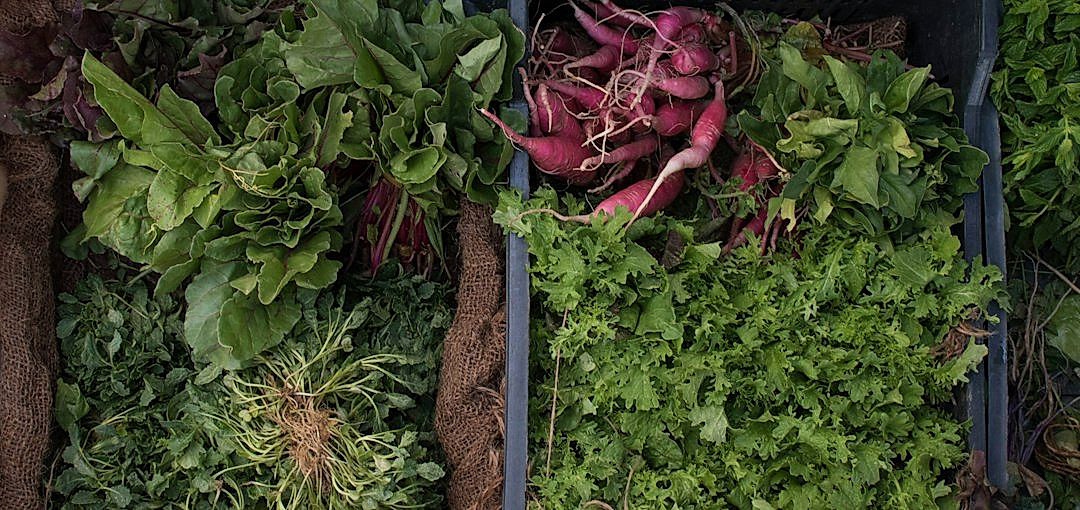Farming cooperatives have emerged as a pivotal tool in enhancing agricultural productivity and profitability.
They help level the playing field in a competitive marketplace and contribute significantly to the success of small and medium farmers.
However, the effectiveness of such cooperatives greatly depends on certain key factors.
This article will dissect these critical elements, shedding light on the often undiscussed nuances associated with the functioning of these cooperatives.
With an emphasis towards produce farming, we dive deep into strategies to improve the cooperative scenario.
This is a must-read for those invested in or considering an entry into the world of agricultural cooperatives.
Contents
Keys To Successful Produce Farming Cooperatives
1. Clear Communication and Regular Membership Meetings
Clear communication is a cornerstone of any successful organization, and this is especially true in the context of a produce farming cooperative.
The diverse nature of such cooperatives, often composed of a variety of different growers with unique skills and specialties, necessitates transparent and open lines of communication to facilitate smooth operations.
Every member must feel comfortable expressing their ideas, concerns, and questions in an environment that respects and values their perspective.
Effective communication bridges the gap between members, leading to increased understanding and cooperation within the team.
Furthermore, regular membership meetings are essential components of functioning cooperatives.
These meetings offer a platform where members can discuss and strategize about the cooperative’s operations, future plans, and potential challenges.
Regular meetings also provide an opportunity to remind members of their shared goals and the benefits of their collective efforts.
It allows the members to be on the same page about various operational and management aspects of the cooperative, enabling them to make informed decisions.
Notably, this helps avoid misunderstandings that can arise due to a lack of information or misconceptions.
More importantly, regular membership meetings are an affirmation of each member’s role in the cooperative, reminding everyone that their efforts and input are valued.
The practice of holding regular meetings also strengthens the democratic nature of cooperatives, as it offers all members a chance to participate in decision making, express their views, and directly impact the cooperative’s direction and success.
In these meetings, members can also address any disputes or underlying issues that may be hampering the cooperative’s productivity or harmony.
Therefore, to ensure continuous progress and harmony within the cooperative, the importance of clear communication and regular membership meetings cannot be overstated.
To achieve this, cooperatives can leverage various communication tools such as group chats, newsletters, e-mails, or face-to-face meetings.
Indeed, by fostering a culture of open discussion and regular meetings, cooperatives can ensure that all members feel heard, valued, and that their contributions matter.
Clear communication and regular membership meetings are not just management strategies – they are catalysts for fostering unity, driving progress, and ultimately, achieving success in produce farming cooperatives.
2. Efficient Resource Management and Sharing
The second key to a successful produce farming cooperative is efficient resource management and sharing.
One of the primary advantages of a cooperative is the possibility to share resources and distribute tasks, ensuring a more efficient utilization of available resources.
In farming, these resources can range from physical assets like land, machinery, and seeds to intangible assets like knowledge and skills.
By effectively managing and sharing these resources, cooperatives can reduce redundancies, pool risks, and ultimately improve their economic efficiency and productivity.
Having a formalized system for resource management and sharing can make a significant difference in the cooperative’s ability to sustain itself and thrive.
The success of a cooperative largely depends on the participation and contribution of each member, and effective resource management can help ensure that all members contribute equitably.
Furthermore, a well-managed cooperative can also ensure that resources are allocated fairly and transparently, thereby promoting trust and solidarity among the members.
In a cooperative, it’s important to remember that resources are not just managed, they are also shared.
Sharing resources not only allows for the pooling of risks, but also enables members to benefit from economies of scale, particularly in terms of purchasing power.
Moreover, sharing resources allows for a more sustainable approach to farming, as the cooperative can optimize the use of resources and reduce waste.
The success of resource management and sharing in a cooperative also depends on clear communication among members, as well as the establishment of clearly-defined rules and procedures.
Members of the cooperative should be actively involved in developing these rules and procedures to ensure that they reflect the needs and interests of all members.
In addition to sharing resources, a successful cooperative also emphasizes the importance of sharing knowledge and skills among its members.
Through the sharing of best practices, innovative farming techniques, and market information, a cooperative can help its members improve their farming skills and enhance their market competitiveness.
The efficient management and sharing of resources are thus fundamental to the success of a farming cooperative, as they enable the cooperative to achieve economies of scale, improve productivity, and foster a culture of solidarity and cooperation among its members.
3. Effective Decision-Making and Dispute Resolution
Effective decision-making is an essential component of successful produce farming cooperatives.
Decisions regarding production schedules, allocation of resources, crop varieties, and marketing strategies are all vital to the cooperative’s operation and require a robust decision-making framework.
Often, these decisions need to be made collectively by the membership, creating a need for a fair and efficient process to make these collective decisions.
This could take the form of a majority voting system, where each member has an equal vote or a system where votes are weighted based on the quantity of produce each member contributes to the cooperative.
Clear rules and procedures should be established from the onset for how decisions will be made to ensure the process is consistent and predictable.
Equally important to effective decision making is having mechanisms in place for dispute resolution.
It’s inevitable that disagreements will arise from time to time within the cooperative, especially when important decisions are being made.
Whether these disputes are between members or between a member and the cooperative, being able to quickly and effectively resolve them is crucial in preventing them from disrupting the cooperative’s operations and causing divisions within the membership.
The cooperative should have well-defined procedures in place for handling disputes, which could include mediation or arbitration processes, or a member-elected committee tasked with resolving disputes.
These procedures should be outlined in the cooperative’s bylaws, and it’s essential that they are communicated to all members and that all members understand them.
Furthermore, the cooperative should strive to foster an atmosphere of open communication and a culture of respect among its members, as this can go a long way in preventing disputes from arising in the first place.
It’s inevitable that disagreements will arise from time to time within the cooperative, especially when important decisions are being made.
Finally, while it’s important to resolve disputes fairly and efficiently, it’s also important not to let them deter the cooperative from its mission and goals.
No matter how effective the cooperative’s decision-making and dispute resolution processes are, they will only be truly successful if they enable the cooperative to fulfill its purpose: to provide a means for produce farmers to collaborate, share resources, and ultimately achieve their common goals.
The Bottom Line
Through an examination of the integral elements required to establish and sustain a successful organization, it’s evident that clear communication, regular membership meetings, efficient resource management, and sharing are crucial.
Equally important is ensuring there are mechanisms for effective decision-making and dispute resolution.
These components interweave to create an optimal environment enabling organizations to function effectively, maintain unity, and achieve their objectives.
It underscores the significant role each member plays within an organization and the benefits that arise from a unified, streamlined approach.
It is essential to uphold these principles for an organization’s success and longevity.
Indeed, these aspects serve as the backbone of any thriving organization.




